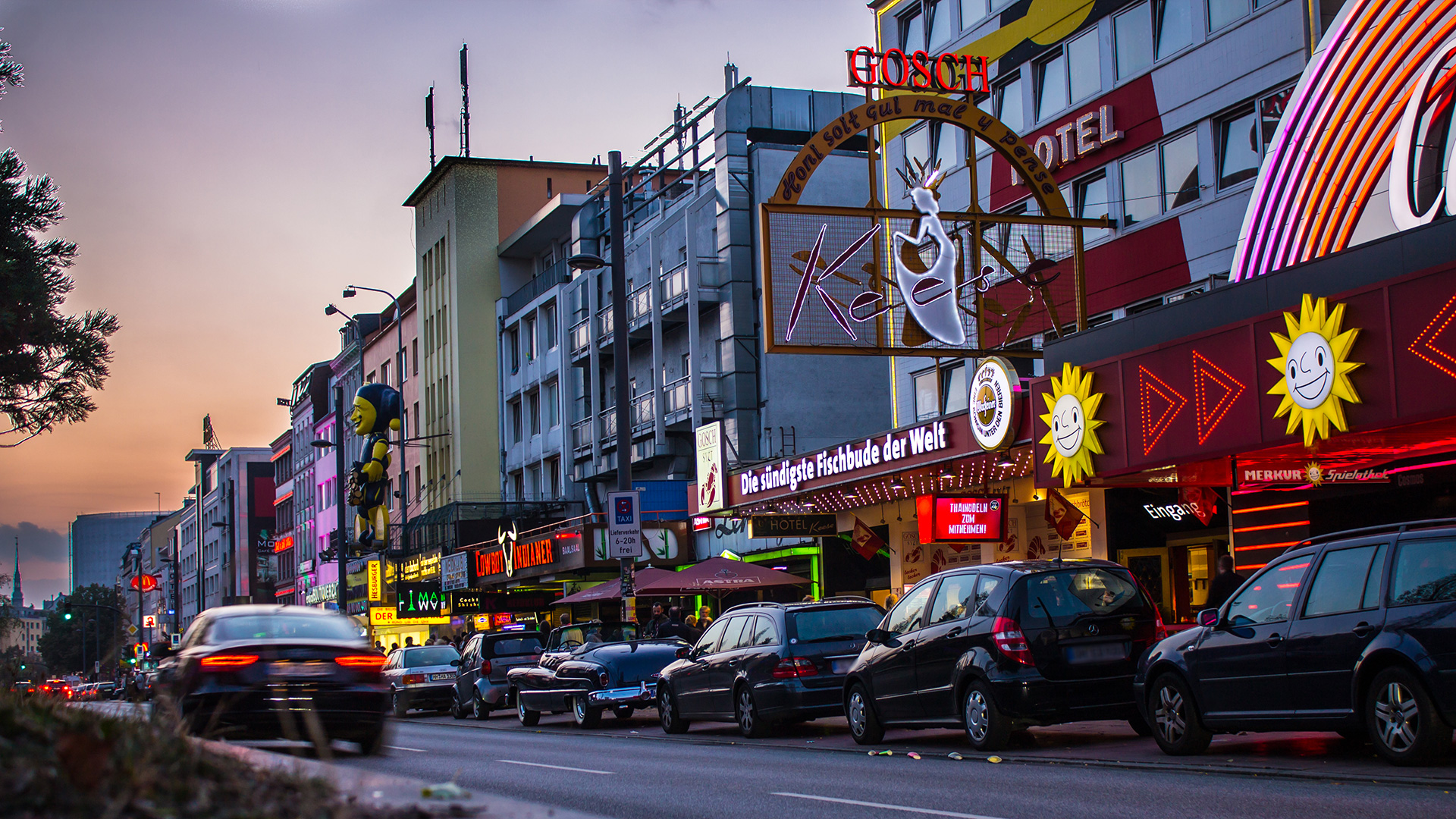Originally due to be finished by 2009 at a cost of €180m, funding issues and planning confusion has pushed the cost up to €785m, with the grand unveiling now expected in spring 2017.
Having taken a tour of the half-finished project, fetching hard-hat and boots donned for the occasion, it’s clear to see why the incredibly complex structure is taking so long. But the controversy has put Hamburg’s ambitious plans under the spotlight – not least, the very un-Germanic state of affairs.
Could it be that the national stereotype is changing? Certainly, the mood of the country is shifting: the electorate returned a few surprises in last month’s election, and even though Angela Merkel’s Christian Democrats won with more votes than ever, forming a coalition government is proving a tricky process. Several more weeks of negotiations are expected…
Back on the Reeperbahn, various shades of indie-rock are on show, some of it echoing what’s past, some of it with bold, new colours.
In the Indra club, where four lads from Liverpool first played as The Beatles (as backing band to a stripper), four-piece We Invented Paris knock out their accomplished Snow Patrol-meets-Mumford & Sons to warm applause. But they’re easily outshone by the likes of Finnish rockers Death Hawks, producing big smiles at the Grüner Jäger club with their heavy, psychedelic boogie; and Múm, the Icelandic troupe who impress with their eerie, melodious folktronica.
Advertising helps fund Big Issue’s mission to end poverty
Of the festival’s homegrown talent, a highlight is Roosevelt, the producer from Cologne whose infectious downbeat disco more than lives up to the hype – and adds his name to Germany’s impressive dance music lineage. From further afield, Washington state’s Robert DeLong also nails it, his one-man-band electro bangers going down a storm in the barn-like environs of the Knust club.
Robert DeLong’s one-man-band electro bangers go down a storm in the Knust club
Taking the weight off in Angie’s Nightclub, I settle down on a sofa just as Josh Kumra takes to the stage. The 22-year-old singer-songwriter may be a contemporary of Emeli Sandé and Wretch 32 (he co-wrote the latter’s No.1 single), but his masterly take on acoustic blues reveals a depth of talent belying his tender years. With a rich, gravelly voice (which is spookily similar to that guy from Gomez), he captivates those present with his simple tales of love lost and found. Think a more accessible, less beardy Josh T Pearson. From Swindon.
Of the “big-hitters” more familiar to your average NME reader, there’s The Strypes, Anna Calvi, Johnny Flynn, Tunng… all of whom I miss, but I do catch Kate Nash, whose current vogue for turning her quirky tunes into grunge-pop seems to be misfiring. The assembled hacks from Blighty are certainly unimpressed – almost as underwhelmed as they are by the Festival’s keynote speech, given by Eurythmics’ Dave Stewart the following day.
The lecture is entitled Where is the Money?, and we are promised a “big announcement”. After Dave has shown us some family snaps up on a screen, he drops the “bombshell” that he is setting up a bank for artists, a financial organisation that will help musicians find their way through the labyrinthine complexities of digital rights and royalties.
It’s a good, principled idea, expanding upon services already out there, and the fact that Dave has got a big cheese from Credit Suisse on board shows that he means business.
Advertising helps fund Big Issue’s mission to end poverty
However, beyond declaring that “it’s the beginning of a new world order”, he’s very sketchy about the actual details of that business. He’s far more keen to play us a recording he made of a woman on the phone reciting a long list of online legalities, which he has set to music, and compels him to accompany with a few cringe-worthy dance-steps. It’s the worst dad-dancing moment in the history of pop.
Dave Stewart is very sketchy about the actual details of the business
But, let’s give him his due: like Hamburg, like Germany, like pop music, Stewart is reacting to the times. Attempting to create order from the momentum of modern life; to anchor the past with the future.
The last night of my visit is spent dancing to a set of ’90s hip-hop from DJ Floschiedler at Planet Pauli. Not exactly fresh-faced the following morning, I attend a chamber concert of music by Strauss, Britten and Brahms (the latter was a city native). I feel proud of my diverse tastes, that I can appreciate such contrasting eras of music. (I also feel slightly queasy, and have to leave early).
But my pride is soon dented. On the way back to the airport, the taxi driver talks enthusiastically about music, switching easily from the city’s State Opera (where I witnessed a remarkable production of La Traviata) to the state of British pop to the ’70s German punk scene. His breadth and depth of knowledge is impressive.
The “old with the new”. That’s how they roll in Hamburg.









